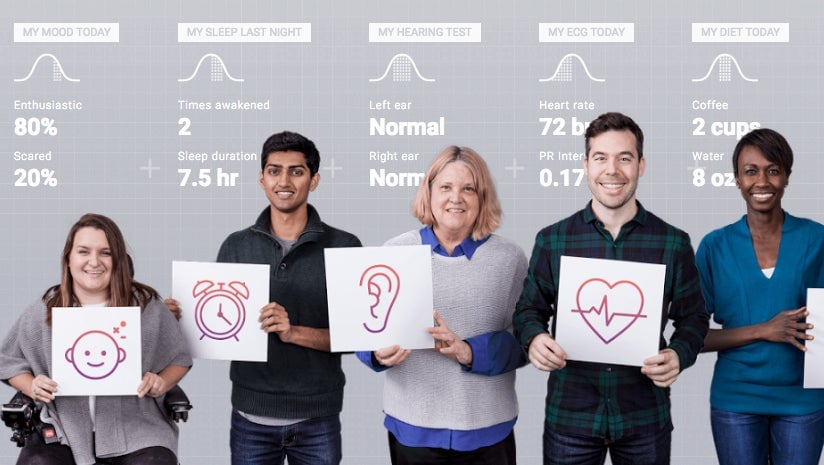Google wants 👅, 😢, and 💩 samples from 10,000 people for a massive medical study
Google and its sister company, Verily, are taking a classic medical research study design and giving it a Silicon Valley spin.


Google and its sister company, Verily, are taking a classic medical research study design and giving it a Silicon Valley spin.
The companies, along with researchers from Duke and Stanford universities, will monitor the health of 10,000 people for four years each, using a battery of gadgets and health tests, like wearables, blood tests, x-rays, and genome mapping. In medical research, this is called a longitudinal cohort study: Get a bunch of people from different walks of life, and follow them around for a long time to see which subjects develop the ailment you’re looking for. Then, go back over the data and see if you can pick out any patterns that suggest a potential cause for the disease.
What sets the Google study, called Project Baseline, apart, is that it’s not looking for a specific ailment, like cancer development in older adults or developmental disorders in children—it wants to build a comprehensive, data-driven profile of human health.
The test won’t take place all at once, according to MIT Tech Review, which reports that patients will be brought in on a rolling basis, the entire project taking up to 10 years.
Each person in the study will wear a health-tracking smartwatch every day, slip a sleep-tracking device under their mattress, and set up a hub in their home to send the encrypted data back to researchers. Notably, the smartwatch is not approved by the US Food and Drug Administration for use as a medical device, but is legal as a “investigational device,” meaning it won’t give the participant health data, just sends it back to Google. The FDA status of the sleep-tracking device is unclear, since the Project Baseline site doesn’t say exactly what it is or does; Google, Alphabet, nor Verily have any FDA approved devices according to the regulatory agency’s website.
They’ll also have up to four in-person appointments per year, at a Baseline study site. During one comprehensive yearly appointment, researchers will assess physical strength, take x-rays and heart scans, ask questions about health and lifestyle, and sample blood, saliva, stool, and tears. Researchers will call interesting or anomalous participants in to be questioned further up to three more times per year, or after major life events. In addition to all that, participants will have to fill out additional surveys online every three months, and answer other questions via the study’s mobile app. In other words, it will be a slight lifestyle change.
Verily, Alphabet’s life science company with an interest in “making the world’s health data useful,” would presumably use this data for its own pursuits, as would the Stanford and Duke medical centers. ”Most of what we see as treating physicians are snapshots in time after people are already ill,” writes Sanjiv Sam Gambhir, Stanford professor and researcher on the project, on the Project Baseline website. “By focusing on health and wellness, we can have a meaningful impact on the well-being of patients around the world.”
The study will also give Google vast troves of medical data to do…well, we really don’t know. It has the ability to give or sell the data to pretty much anyone, per the study’s Terms of Service and Privacy Policy. For it’s part, Google has expressed vague interest in contact lenses that monitor biological data, and not dying (a stated interest of the Calico company).
Last but not least, Verily has the rights to sell the data to third parties after names, addresses, and phone numbers are scrubbed, MIT Tech review reports, and patients won’t get any comprehensive analysis of their own data. It’s unknown whether this is enough to keep companies from re-identifying participants from that data.